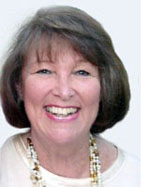By Cynthia Citron

LOS ANGELES — Many years ago, as I tried to keep up with each of my kids as they breezed through “the new math” and learned to multiply fractions, I realized with dismay that if I had to go through grammar school again I would probably flunk the third grade.
So you can imagine how I felt about The Big Short, the film made from Michael Lewis’ powerful book that chronicles in intricate detail how the Wall Street money-men manipulated the housing market until the credit bubble exploded, plunging much of the world into bankruptcy and the depression of 2008. I left the theater dazed and bewildered. Frankly, they lost me at “bundled subprime mortgage loans.”
But when I saw the film for the second time and was able to watch it without panicking, I realized what a fine expose it really is. As it guides you, step by step, through the fraudulent manipulations of the Wall Street bankers, brokers, and hedge fund managers who believed that prosperity would go on forever, it introduces the men who outsmarted them and made billions from their own ingenious transactions. Real men. True story.
The names, of course, have been changed to protect the guilty. Except for one man: Dr. Michael Burry, a quirky doctor with many of the dysfunctional behaviors of a man with Aspberger syndrome (think Dustin Hoffman in Rain Man). Burry crunched the numbers and figured out that the market could not sustain the ever-ballooning cost of homes and that the banks would not be able to supply indefinitely the loans that were needed. And so he bet against them, anticipating the moment when home-owners would run out of money and begin defaulting on their mortgage payments.
Burry is played with great intensity by Christian Bale, who pads around his office in a tee shirt and bare feet and bangs a set of drums to overcome his anxieties. Bale is magnificent, and he has been nominated (and won) many prestigious awards for the role. (But not the Golden Globe, as this appears to be Leonardo DiCaprio’s year.)
Also nominated for a Golden Globe was Steve Carell, who is named Mark Baum in the film and represents the real-life Steve Eisman, who was at that time a money manager at a company affiliated with Morgan Stanley. Carell, however, plays the cranky owner of a small brokerage firm and runs away with most of the funny scenes. (The film is classified as a comedy/drama, after all.)
Meanwhile, Ryan Gosling, as a rather unscrupulous trader called Jared Vennett, hears about Burry’s predictions and comes to the conclusion that they are true. He is joined by Carell as they invest heavily in the credit default swap market, which swaps their stock holdings in a massive bet that homeowners will default on their bank loans.
Carell, after researching the situation himself, believes Burry’s predictions too. But in the end, when the housing market collapses, he is loath to unload his swapped stock, knowing that the inevitable debacle will result in people losing their jobs, their homes, and their way of life.
Gosling, in addition to his role as Vennett, breaks the fourth wall and talks directly to the movie audience, explaining much of the nitty gritty of the complicated transactions that the stock market is engaged in. He is reminiscent of the Stage Manager in Thornton Wilder’s classic play Our Town who gently guides the audience through the every-day events in Grover’s Corners.
There are many outstanding cameo roles in this spectacular 20-person cast, including one by Brad Pitt (whose Plan B Entertainment Company produced the film) as a retired banker who comes out of seclusion to help John Magaro and Finn Wittrock, two entrepreneurial but underfunded traders, get in on the action.
In addition, four celebrities appear in the film as themselves to illustrate some of the activities covered in the film. Chef Anthony Bourdain, aproned in his massive kitchen, demonstrates how he converts three-day-old fish into a tasty stew. Actress/singer Selena Gomez, filmed at a craps table in Vegas, demonstrates how bets (and debts) can accumulate when bystanders support a player who appears to be perpetually winning. Australian actress Margot Robbie reclines in a thick cloud of bubble bath and drinks champagne as she elaborates on the benefits of investing. And Richard Thaler, a theorist in behavioral finance, who bears the formidable title of Ralph and Dorothy Keller Distinguished Service Professor of Behavioral Science and Economics at the University of Chicago Booth School of Business, gives a brief dissertation on a subject I didn’t understand and don’t remember.
All of this tragic craziness is directed by the screenplay’s coauthor (with Charles Randolph), Adam McKay. McKay keeps the action and the actors moving at an appropriately frantic pace, and if you can keep up with what’s going on, you’ll get a sizable bang out of The Big Short. Especially if you never invested in mortgage loans.
*
Citron, based in Los Angeles, reviews stage and movie productions.